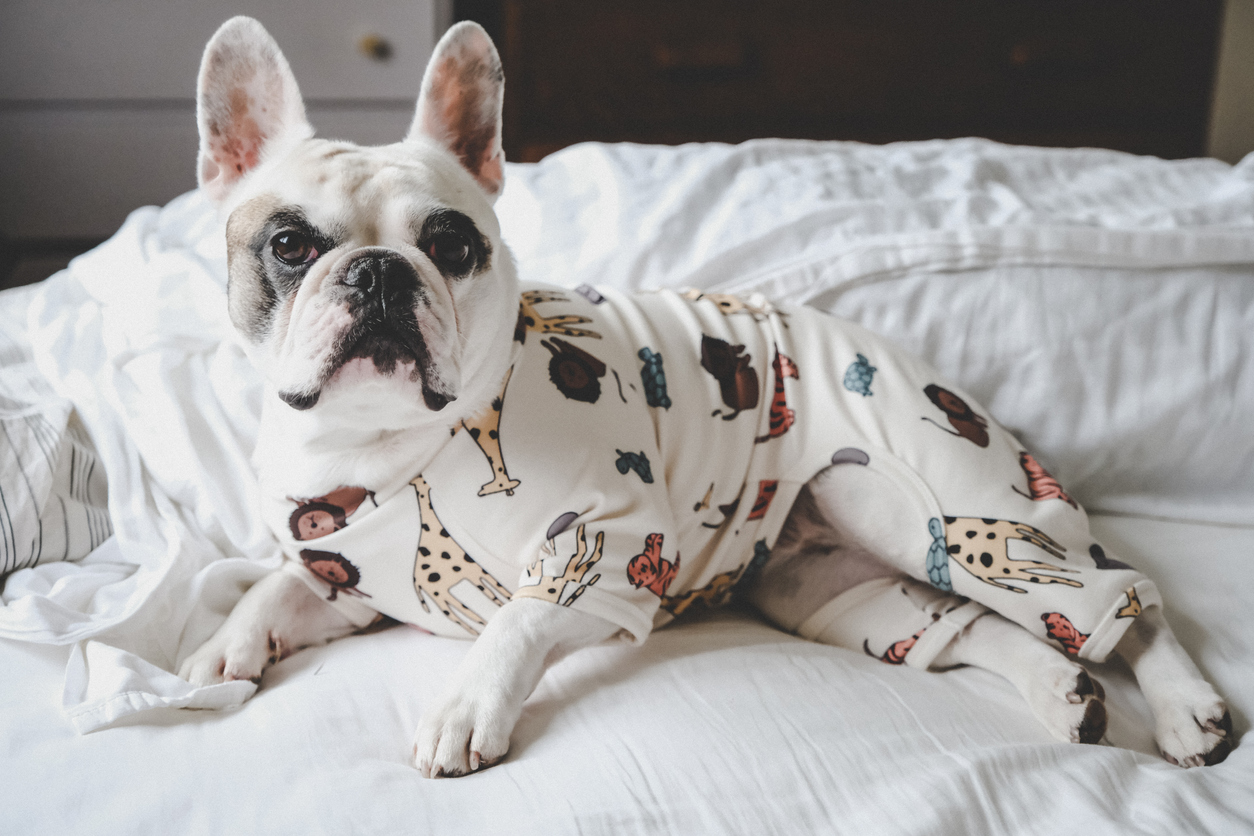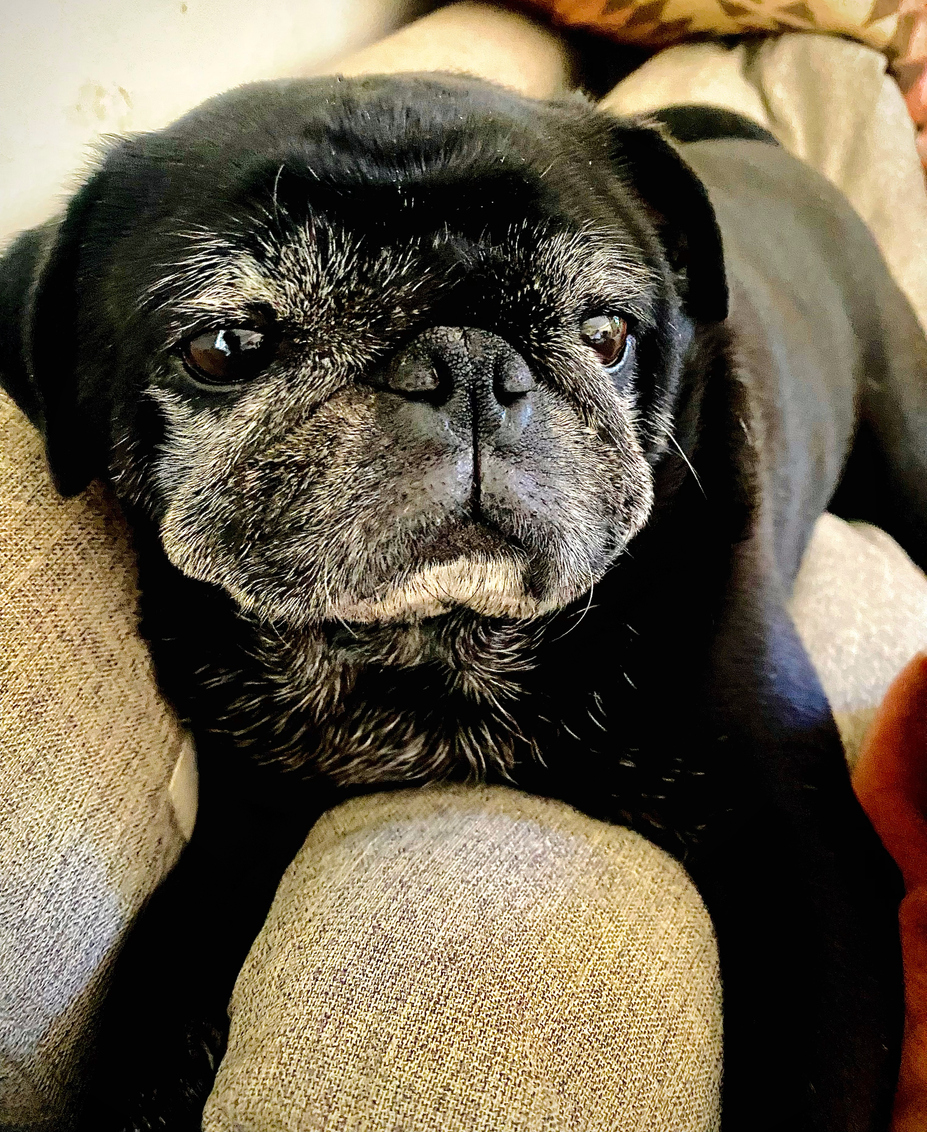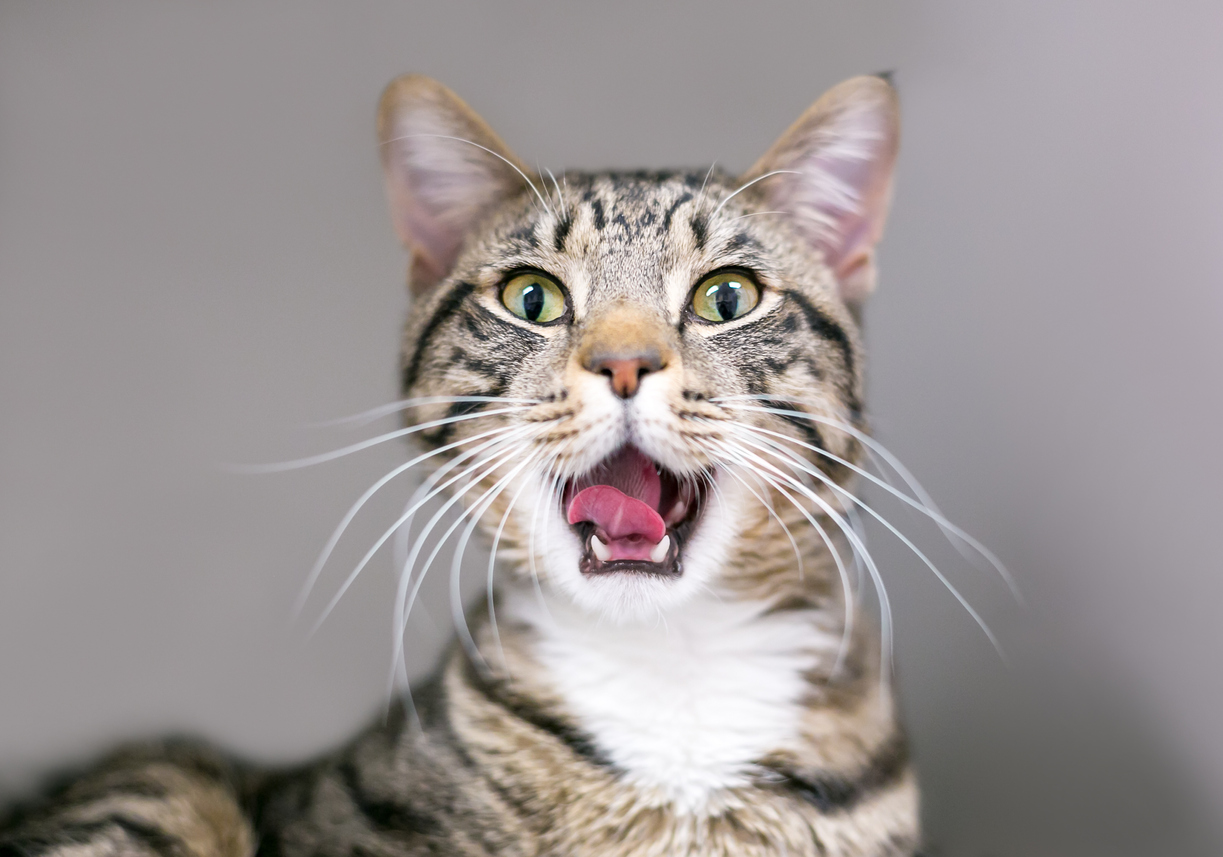What is Veterinary Acupuncture
What is acupuncture?
The term acupuncture is from the Latin, "acus" meaning 'needle' and "punctura" meaning 'to prick'.
Acupuncture, in its simplest sense, is the treatment of conditions or symptoms by the insertion of very fine needles into specific points on the body in order to produce a response. Acupuncture points can also be stimulated without the use of needles, using techniques known as acupressure, moxibustion, cupping, or by the application of heat, cold, water, laser, ultrasound, or other means at the discretion of the practitioner.
The specific acupuncture points have been well charted for both humans and animals, and were conceptualized by ancient Chinese scholars to be connected with each other and various internal organs via meridians or channels. Many of these channels trace the paths of the body's major nerve trunks.
Each acupuncture point has specific actions when stimulated. Combinations of points are often stimulated to take advantage of synergistic reactions between them. Which acupuncture points are stimulated, the depth of needle insertion, the type of stimulation applied to the needles, and the duration of each treatment session depends on the patient's tolerance, the experience and training of the practitioner, and the condition being treated.
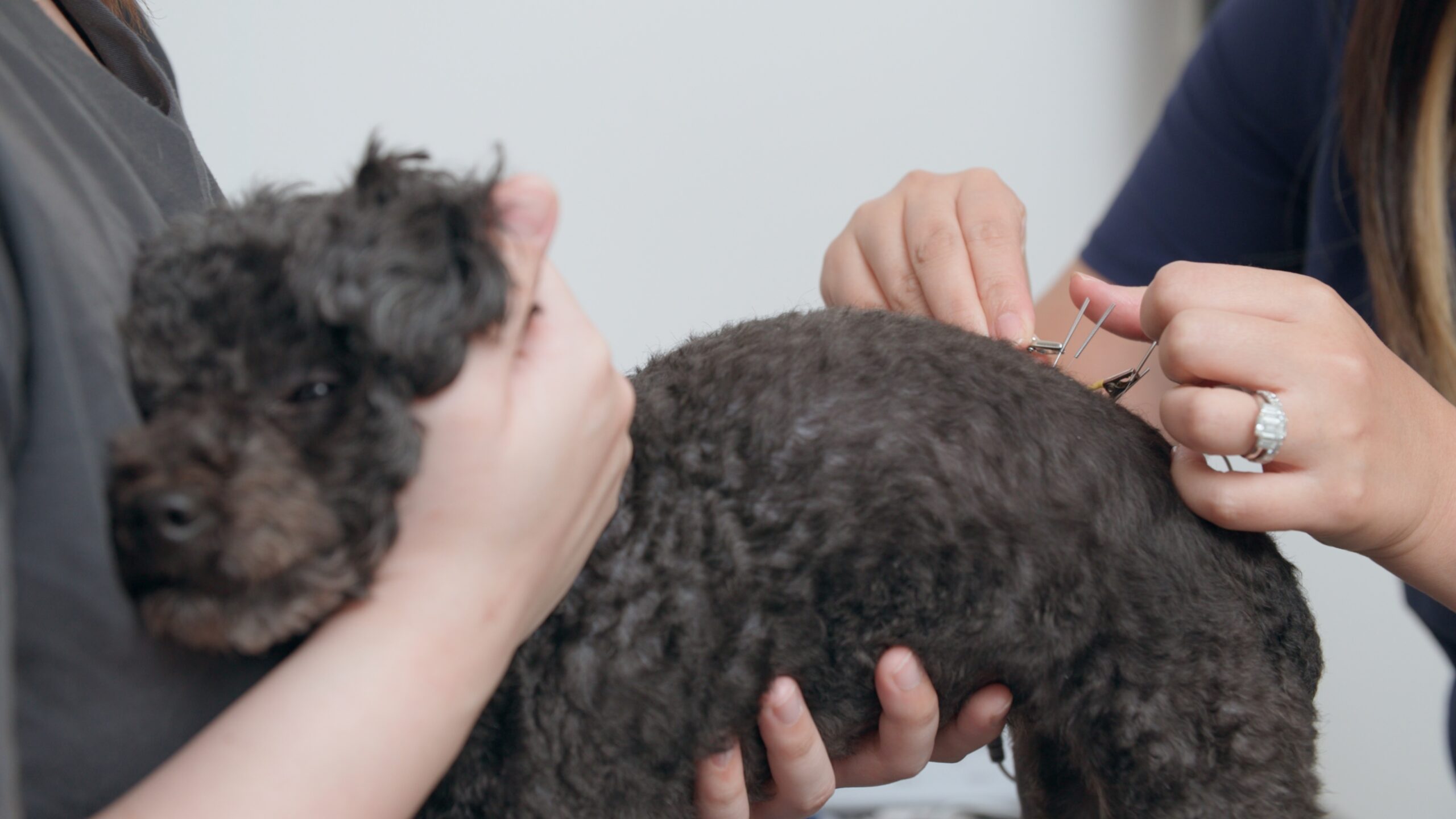
What is the history of acupuncture in veterinary medicine?
Acupuncture is an ancient form of medical treatment, and is believed to have possibly originated in India at least 7000 years ago. The development of acupuncture into the extraordinarily effective tool it is today probably began in the earliest dynasties of China. Jesuit missionaries brought acupuncture to Europe from the Orient in the late seventeenth century, where it has continued to be used to varying degrees. In North America, the use of acupuncture outside of Asian-American communities was infrequent until the early 1970s.
Since then, as more clinical research has been conducted showing positive results in the treatment of both animals and humans, its use has been increasing. Most published reports on veterinary acupuncture originate in France, Austria, China, Belgium, Australia, Taiwan, and the United States.
On which species of animals is acupuncture practiced regularly?
Acupuncture can be used on all species of animals, and has documented efficacy on a wide range of species, including elephants, cattle, horses, dogs, cats, monkeys, and rabbits. However, it tends to be more frequently used in companion animal species such as the horse, dog and cat. Most animals tolerate the treatments very well. It may be necessary to gently restrain the animal during the first treatment to minimize discomfort. As a rule, animals relax and sit or lie quietly for subsequent treatments.Who practices veterinary acupuncture and do I need a referral?
Because of the differences in anatomy, and the potential for harm if the treatments are done incorrectly, only a properly trained veterinarian should perform acupuncture on animals.
As veterinary acupuncture becomes more accepted, there are an increasing number of veterinarians in private practice who possess the necessary training and experience. In addition, there are veterinary acupuncturists at some of the veterinary colleges and teaching hospitals.
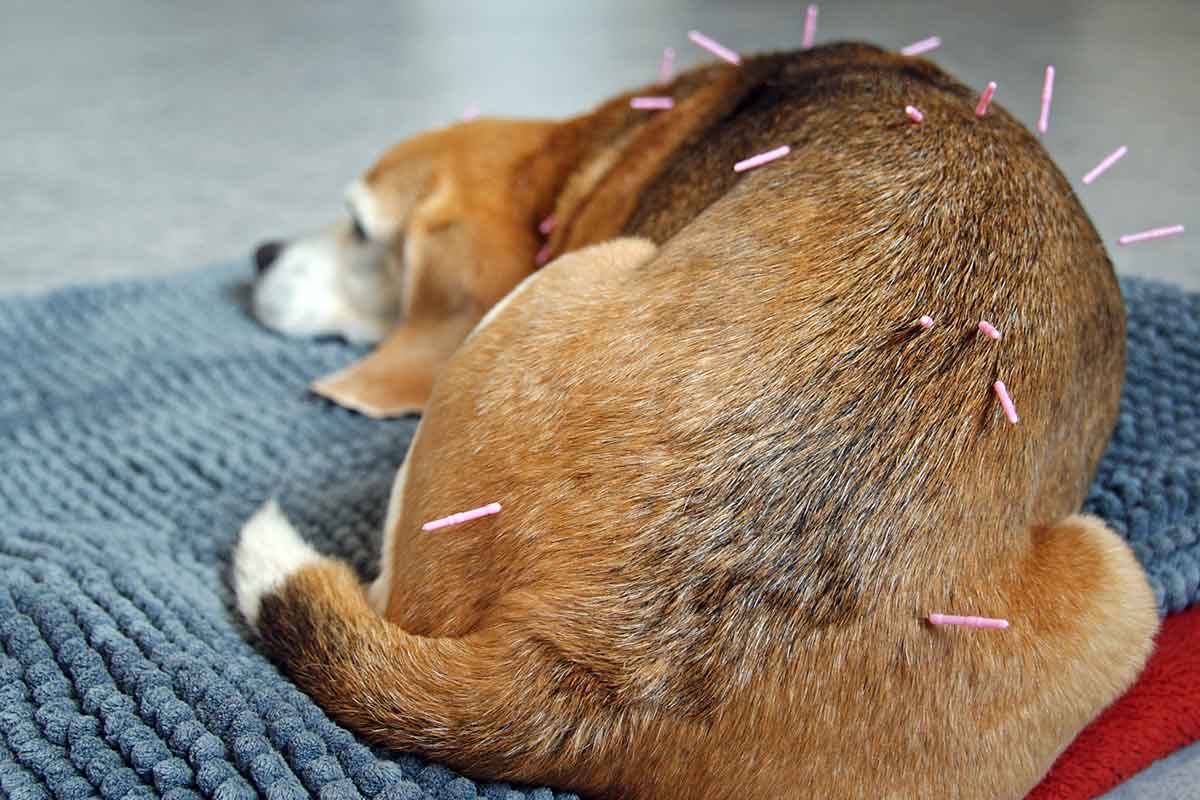
What conditions are most often treated with acupuncture?
In veterinary medicine, there is evidence of the success of acupuncture for treating disorders of the reproductive, musculoskeletal, neurologic, pulmonary, gastrointestinal and dermatologic systems. The most common conditions that are treated include traumatic nerve injuries, intervertebral disk disease, degenerative myelopathy, epilepsy and other central nervous system disorders; asthma, allergic dermatitis, lick granulomas; and chronic pain such as that caused by degenerative joint disease.
Acupuncture can be used in conjunction with general anesthesia, allowing decreased doses of drugs such as analgesics. Any condition may potentially benefit from acupuncture.
How can my pet benefit from acupuncture?
Acupuncture stimulates healing of some conditions, and provides effective pain relief in others. If properly applied, it may eliminate the need for surgery in certain conditions. Following surgery, it can improve the patients' comfort level and speed up the post-operative recovery period. In some cases, it may reduce or eliminate the need for chronic medication.How successful is acupuncture?
The success of the treatment of chronic conditions will vary according to the skill of the practitioner, the disorder being treated, and the number and frequency of acupuncture treatments. The earlier in the course of disease that acupuncture is started and the more numerous and frequent the treatments, the better the response tends to be. As a very rough guide, about 1⁄4 of patients show major improvement, 1⁄2 show significant improvement but still have some symptoms, and 1⁄4 show little or no benefit.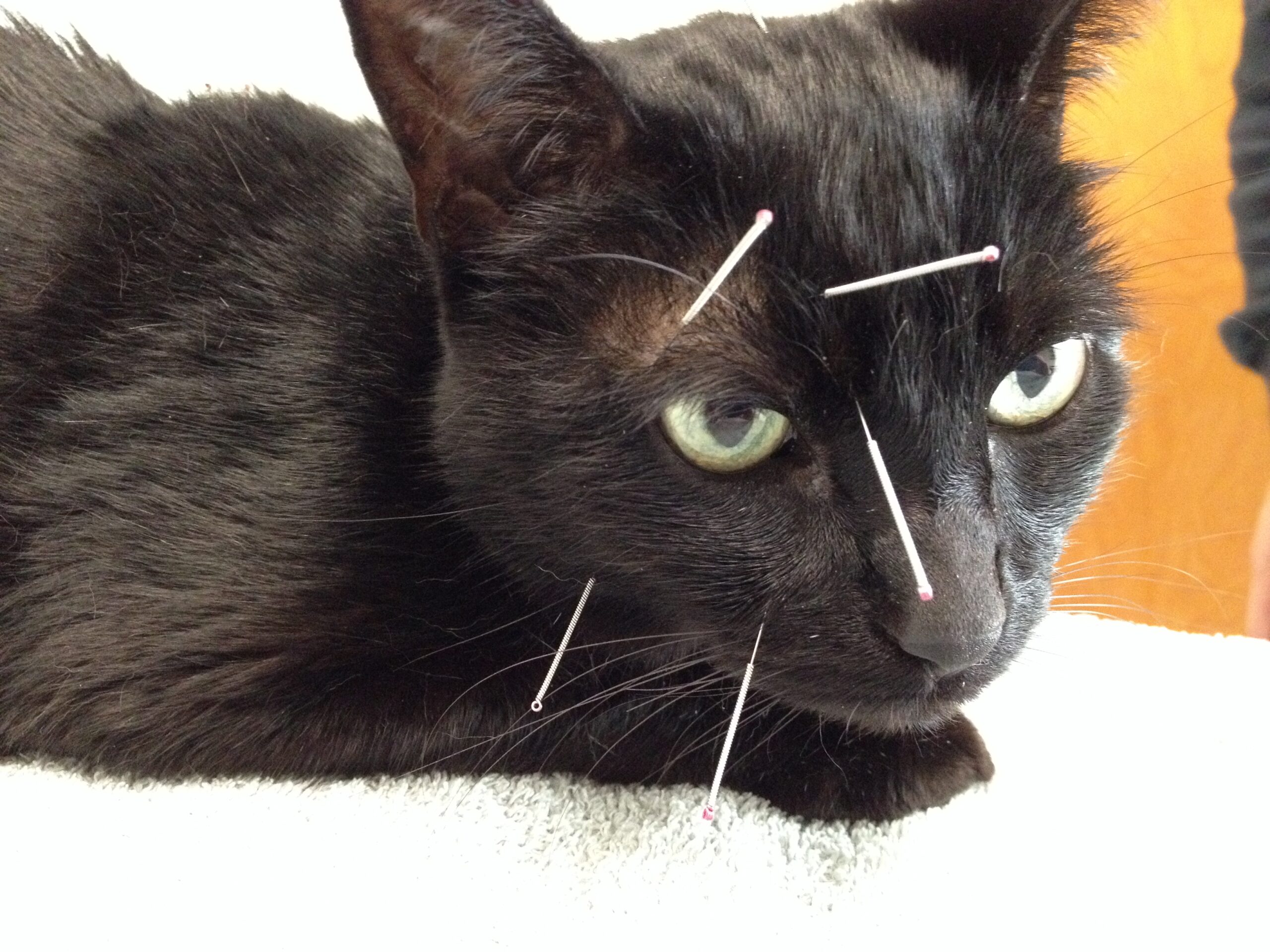
How safe is acupuncture?
Acupuncture should never be administered without a proper veterinary diagnosis and an ongoing assessment of the patient's condition and response to any prior treatment.
This is critical because acupuncture is capable of masking pain or other clinical signs and may delay proper diagnosis once treatment has begun. Elimination of pain may lead to increased activity on the part of the animal, thus delaying healing or worsening the original condition.
With most acupuncture treatments, multiple acupuncture points are stimulated at the same time, taking advantage of the interactive response to stimulation. However, if the points are chosen incorrectly, if the needles are inserted to the wrong depth, or if the duration of treatment is inappropriate, the patient's condition may on occasion worsen.
In the hands of a knowledgeable veterinary acupuncturist, adverse reactions are rare, but may occur. Such reactions may include mild transient bruising or swelling at the needle insertion site; a mild worsening of the condition for a short time (usually 24 to 48 hours); difficulty removing needles because of muscle spasm; injury to an underlying tissue or organ; and infection at the needle site. Certain acupuncture points are contraindicated in pregnant animals. Caution is exercised if certain drugs such as narcotics or corticosteroids are being used, or if the animal has a clotting disorder.
What is the cost of acupuncture?
Comprehensive acupuncture treatment involves a thorough history taking and physical examination, followed by a patient assessment and formulation of a treatment plan. It rarely involves a single visit, and costs will vary according to the specific condition being treated, the equipment required and the response of the patient. The fees associated with acupuncture treatment are set by the individual practitioner, and will often reflect the skill, experience and training of the practitioner.Can acupuncture be combined with other types of veterinary medicine?
Acupuncture is useful as an adjunct therapy to control vomiting associated with chemotherapy, to manage post-operative pain and to speed healing after injuries. However, as a complete and well-developed system of medicine, acupuncture is effective as the sole form of treatment for most conditions, and is used that way by skilled practitioners.
Caution must be used when mixing acupuncture with some drugs, or with other forms of therapy. In general, however, acupuncture can be very effectively combined with most conventional and alternative therapies. Using several therapies simultaneously can make if difficult to determine which therapies are of the most benefit to a patient. Because of this, some practitioners recommend spacing different forms of treatment hours or days apart.
Certified veterinary acupuncturists have the knowledge and skill to understand the interactions between different forms of treatment and to interpret the patient's response to therapy. If your pet is receiving acupuncture treatment from a practitioner other than your regular veterinarian, it is imperative that both individuals are kept updated about the ongoing treatment in order to provide coordinated care of your pet, to allow proper evaluation of treatment and to minimize any avoidable interactions or interferences. Treatment of animals with acupuncture by anyone other than a veterinarian trained or certified in its methods is not advisable.

